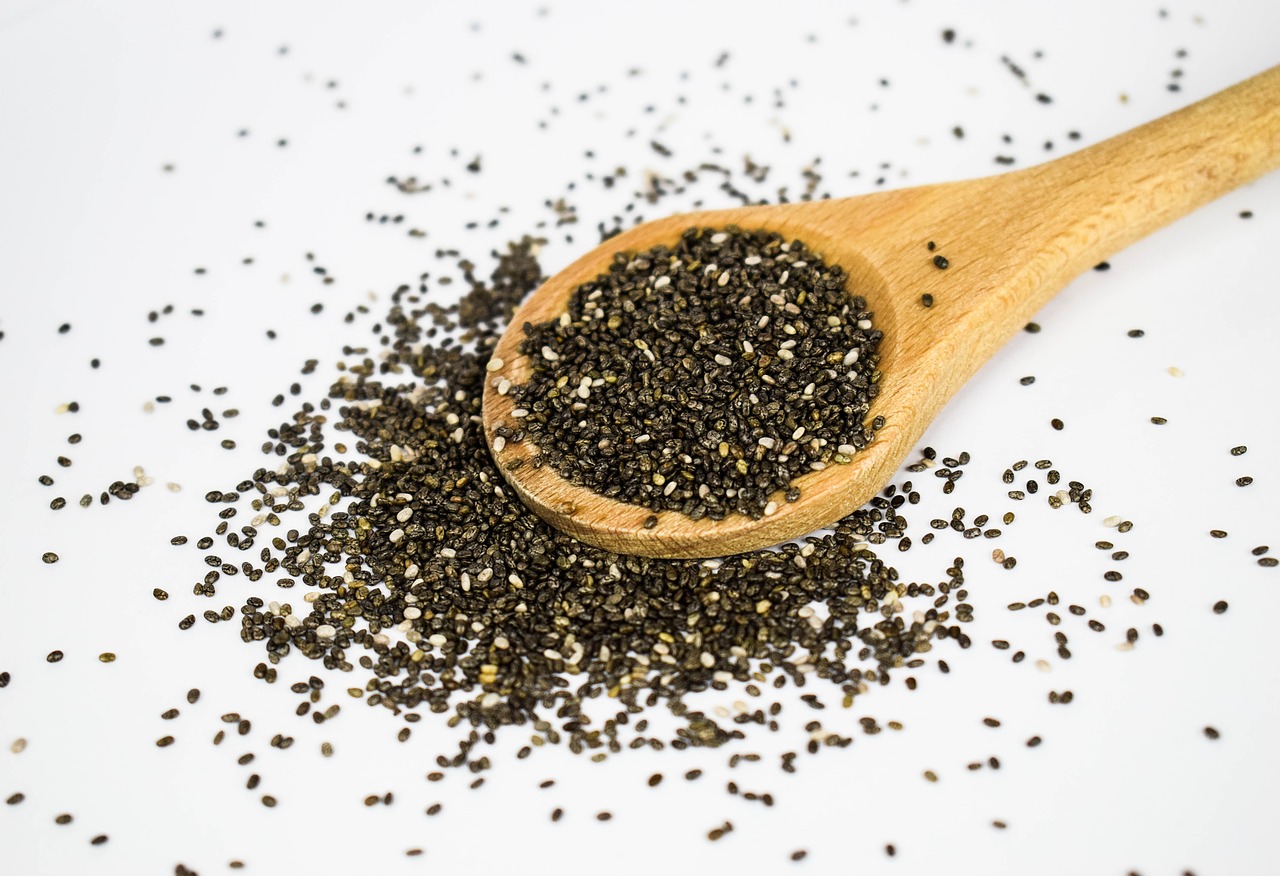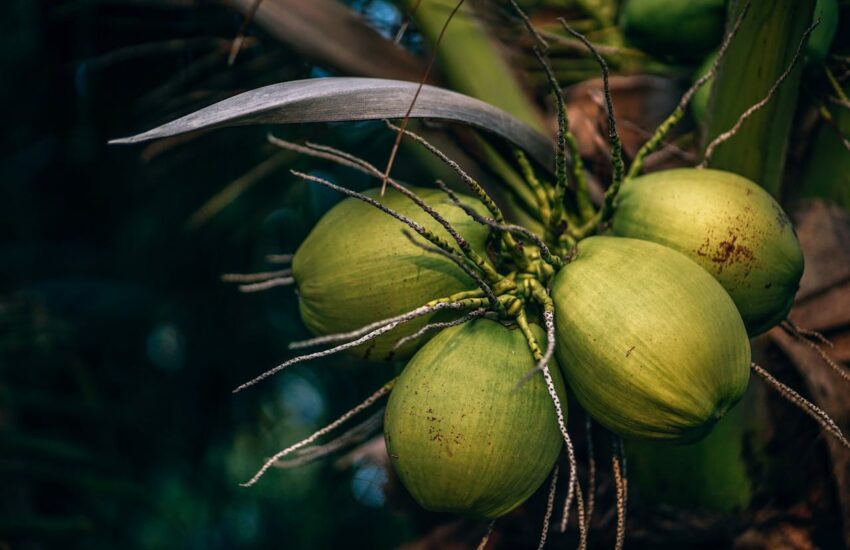4 Health-Based Reasons To Eat More Chia Seeds
What you eat directly affects how you feel.
You know that and I know that.
Which is why I’m not going to spend a whole lot of time explaining the basics of why eating whole foods like chia seeds improve health.
That being said, I do want to focus on what makes chia seeds a superior food for boosting health.
1 – They May Help You Lose Weight
You could reasonably call chia seeds weight loss food.
They’re not a magic pill that helps you lose weight. Instead, they’re bursting with nutrients associated with blood sugar regulation and satiation that can aid in weight loss.
Chia seeds are a high-fiber health food. And while eating fiber is known to aid in weight loss, mainly because fiber helps people to feel full for a long time, chia seeds actually contain a special kind of fiber that promotes fullness for longer periods of time.
Chia seed’s specific fiber type are known as “glucomannans”. What makes glucomannans a bit different than other kinds of fiber is they’re a hydrophilic fiber. Hydrophilic fibers “love water” and actually attract water to it.
If you’ve ever put chia seeds in water and watch them turn into little “jellyfish eggs” that’s the glucomannans at work.
This active attraction means that as chia seeds move through your gut they’ll draw water to them and this will make you feel like you’ve just eaten, even if it’s been more than a few hours since your last meal.
In addition to possibly controlling appetite, there’s research showing chia seeds can help to keep blood sugar healthy (which is known to help with weight loss).
The European Journal of Nutrition published a study supporting this claim. In the study, two groups of subjects ate two different kinds of bread. One bread had chia seeds and the other did not. After each meal the researchers measured blood glucose. Their findings showed the people eating the chia seed-containing bread had lower postprandial blood sugar levels than those who ate the regular bread.
2 – They’re Filled With Muscle-Building (and keto friendly) Protein:
While it may seem like I’ve taken an adversarial stance on protein, I really haven’t.
I simply think that we’ve got to end the love affair with over indulging in protein.
The good news is chia seeds offer an appropriate level of protein, and that amount of protein is more than enough to help you build lean muscle without harming your body.
Chia seeds contain roughly 14% protein by weight, which is great for a plant. This kind of protein is quite beneficial for a few different applications; first off, it contains essential amino acids, which are synthesized to help build muscles – so yes, you can pack on some serious muscle using chia seeds.
Its protein content also ties into how chia can aid in weight loss.
In terms of which nutrients are best for promoting lean muscle mass, protein leads the way.
Two separate studies confirmed a diet high in protein is extremely useful in helping to curb obsessive thoughts about food consumption. In one study, it reduced these problematic thoughts by as much as 60%.
The other study proved protein has the ability to limit how much you eat late at night. Protein was shown to reduce late-night snacking by as much 50%.
So basically, protein is like a huge STOP sign for your body, helping you stick to dietary goals and eat less. This is because protein causes your body to feel satisfied and curbs out-of-control cravings.
Consider protein (and chia seeds) as a great way to stay on track for your dietary goals and weight loss. They’ve got 4 grams of protein for every 28 grams, making them one of the best places to go for plant-based proteins.
3- Chia Seeds Deliver Healthy Fats:
Fat is what makes food taste good.
And that’s no different when it comes to chia seeds.
The truth of the matter is chia seeds contain an incredible amount of heart-healthy fat. Every 1 ounce serving of chia seed offers 9 grams of fat, 5 of which are omega-3 fats known as alpha-linoleic acid.
While the conversion of ALA into DHA and EPA isn’t all that efficient (EPA and DHA are what are in fish oil) the fact of the matter is your body can still use those omega-3s metabolically (i.e. they can use those fats during ketosis).
There’s also a bit of saturated fat that your body needs to make help boost HDL (good cholesterol).
While chia seed has omega-6 fatty acids in it, and omega-6 can be problematic when you eat too much of it, one gram of chia only has 1 gram of omega-6 fatty acids in the form of linoleic acid which means you’re getting a necessary form of fat without worrying that it’ll somehow “oversupply” you with this potentially inflammatory fat.
The fat in chia seeds is primarily polyunsaturated fat, which is considered to be “good” fat. Polyunsaturated fat is liquid at room temperature and may boost heart health when you use it to replace less healthy fat (like saturated fat) in your diet.
There are two different kinds of polyunsaturated fatty acids (PUFAs) and chia seeds contain both of them. According to USDA data, you’ll get 230 percent (or 2.5 grams) of your daily recommended intake of α-linolenic acid (ALA) omega-3 fatty acids. And you’ll get 7 percent (1 gram) of your recommended daily intake of linoleic acid or omega-6 fatty acids.
There is no monounsaturated fat in a single serving of chia seeds. You’ll also get just under one gram or about 2 percent of your recommended daily intake of saturated fat.
4 – May Keep Your Heart Ticking and Ticking:
Chia seeds also contain a healthy set of antioxidants that help support a healthy inflammatory response that may help to keep your heart in great shape. The more you can do to keep your body’s response to inflammation regulated, the healthier you (and your heart) will be.
Additionally, chia seeds provide nutrients that are essential for heart and metabolic health, including phosphorus, magnesium, and selenium.
As VeryWellFit notes, it doesn’t take a whole heck of a lot of chia seed to pump your body full of essential nutrients.
“You will get 17 percent (122 mg) of your daily recommended intake of phosphorus if you consume a tablespoon of chia seeds and you follow a 2000-calorie per day diet. Phosphorus aids in bone development and is important for protein, fat, and carbohydrate utilization in the body. You’ll also benefit from 15 percent (47 mg) of your daily magnesium needs, and 14 percent of your selenium needs.” they write.
Final Notes On Chia Seeds (and Where to Get Great Tasting Varieties)
Pictured below are the nutrition facts for chia seeds.
As you’ll see, it’s a great addition to your diet, whether you eat keto, paleo, or have a different kind of eating program.

My recommendation with chia seeds is to get them organic whenever possible. Most chia seeds you buy on store shelves come from foreign countries where tolerance standards on conventionally produced foods leave a lot of room for farmers to use dangerous chemicals.
Organic chia seeds have their production methods third-party verified, which means you can count on them not to be nearly as dangerous as conventional crops.
When it comes to getting best-tasting chia seed, I recommend trying various kinds out.

